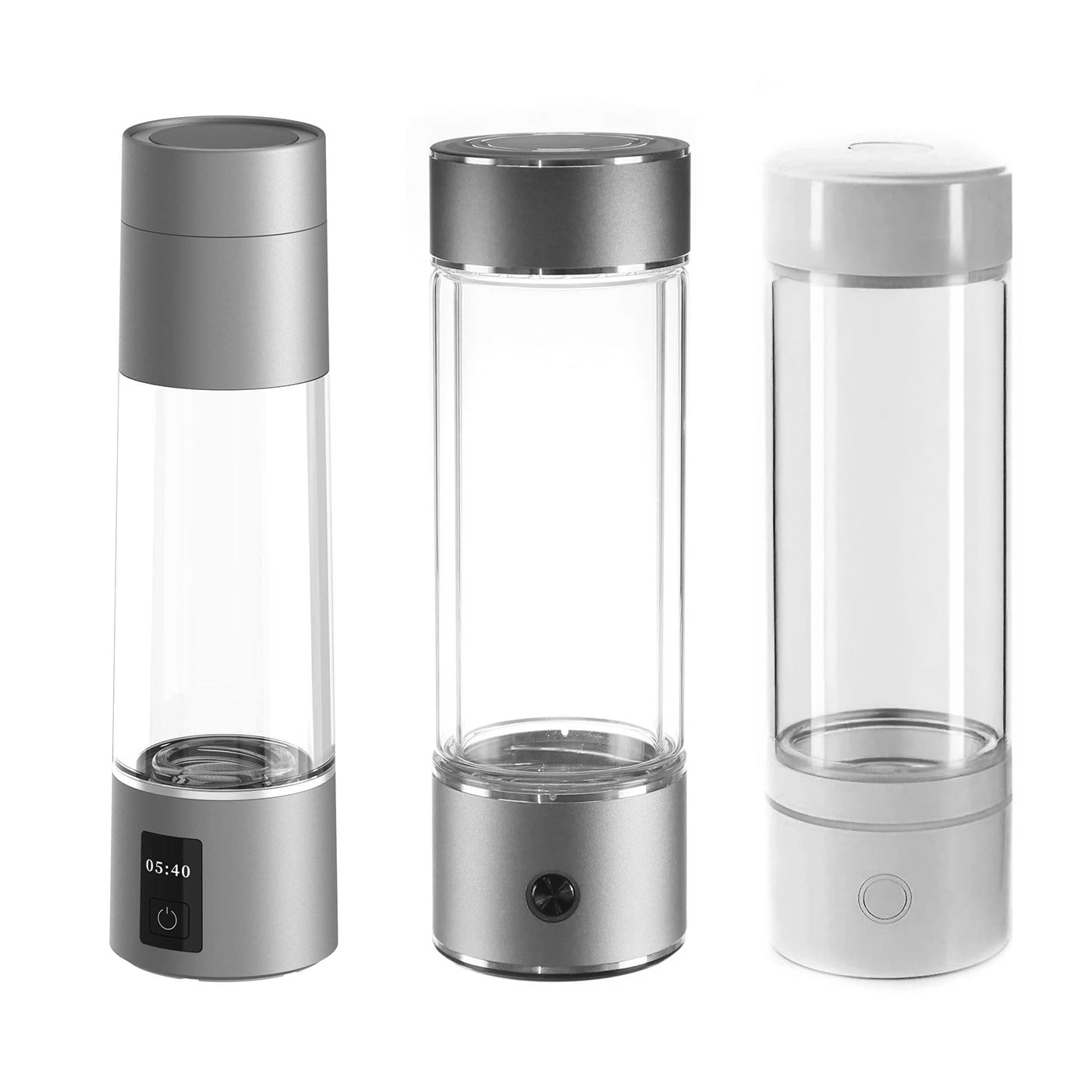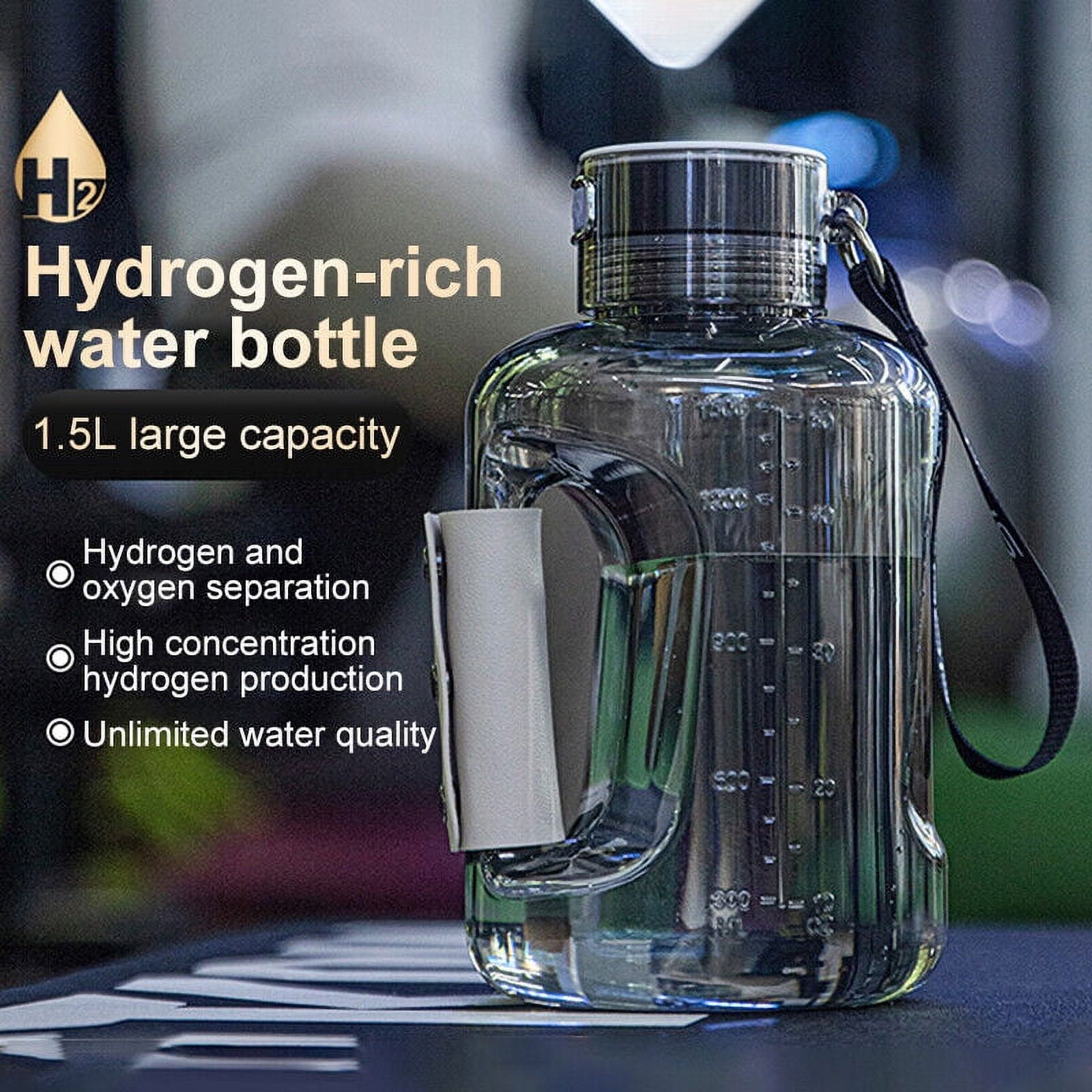Hydrogen Water Bottle That You Can Use Tap Water In

Imagine stepping into your kitchen after a long day, the setting sun casting a warm glow across the countertop. You reach for a glass, turn on the tap, and fill a sleek, modern-looking bottle. But this isn't just any bottle; it's a hydrogen water bottle, transforming ordinary tap water into a refreshing elixir promising enhanced hydration and antioxidant benefits. This everyday scenario, once confined to the realm of futuristic health trends, is now becoming increasingly accessible, thanks to innovative new designs.
The rise of hydrogen water bottles that can utilize tap water marks a significant shift in the wellness industry, offering a convenient and potentially cost-effective way to access the purported benefits of hydrogen-rich water. These bottles, employing sophisticated electrolysis technology, separate water molecules (H2O) into hydrogen (H2) and oxygen (O2), infusing the water with molecular hydrogen. This article delves into the science behind these bottles, explores their growing popularity, and examines their potential impact on health and well-being.
The Science Behind Hydrogen Water
The buzz surrounding hydrogen water stems from the belief that molecular hydrogen acts as a potent antioxidant. Proponents suggest that it can selectively neutralize harmful free radicals in the body, reducing oxidative stress and potentially mitigating the risk of chronic diseases. Research, although still preliminary, has indicated that hydrogen water may have therapeutic effects in areas such as sports performance, inflammation, and neurodegenerative diseases.
Electrolysis: The Key Technology
The core of a hydrogen water bottle lies in its electrolysis technology. The process involves passing an electric current through water, splitting the water molecules into their constituent elements. A specialized membrane, often a proton exchange membrane (PEM), allows hydrogen ions (protons) to pass through while blocking other ions, ensuring the purity of the hydrogen gas produced. This gas is then dissolved back into the water, creating hydrogen-rich water.
Older generation hydrogen water generators often required distilled or purified water to prevent mineral buildup and electrode damage. This presented a significant inconvenience. The latest bottles, however, are engineered to handle tap water. They are equipped with more robust electrodes and advanced filtration systems. This makes hydrogen water accessible to a wider audience.
The Allure of Tap Water Hydrogen Bottles
The convenience of using tap water is a major driver behind the popularity of these new-generation hydrogen water bottles. Users no longer need to purchase expensive distilled or purified water. This significantly reduces the cost and environmental impact associated with bottled water. Just fill, generate, and enjoy.
Beyond convenience, the perception of enhanced health benefits fuels demand. Many users report feeling more energized, better hydrated, and experiencing improved skin health after incorporating hydrogen water into their daily routine. While these anecdotal experiences are compelling, it's important to consider them alongside scientific evidence.
Addressing Concerns and Skepticism
Despite the growing enthusiasm, skepticism surrounding hydrogen water remains. Critics argue that the concentration of hydrogen in these bottles may be too low to elicit significant therapeutic effects. Others point to the limited number of large-scale, peer-reviewed studies supporting the claimed health benefits. The scientific community is actively researching the effects of molecular hydrogen, and more rigorous studies are needed to definitively establish its efficacy.
Quality control and product safety are also important considerations. Not all hydrogen water bottles are created equal. The quality of the electrodes, the efficiency of the electrolysis process, and the potential for contaminants to leach into the water can vary significantly between brands. Consumers should research reputable brands, look for certifications, and prioritize bottles made from food-grade materials.
The Market Landscape and Future Trends
The market for hydrogen water bottles is rapidly expanding, with a diverse range of products available at various price points. From sleek, portable models to larger countertop units, consumers have a wide array of options to choose from. Online retailers, health food stores, and even some mainstream retailers are now stocking these products.
As technology advances, we can expect to see further improvements in the efficiency and durability of hydrogen water bottles. Future trends may include integration with smart home devices, enhanced filtration capabilities, and personalized hydrogen concentration settings. The focus will likely shift towards more sustainable and eco-friendly designs, aligning with growing consumer awareness of environmental issues.
The Role of Regulatory Bodies
The lack of clear regulatory guidelines for hydrogen water products remains a challenge. Regulatory bodies like the FDA (Food and Drug Administration) haven't made specific evaluation or statement about hydrogen water. As the market matures, it will be crucial for regulatory agencies to establish standards for hydrogen concentration, purity, and labeling. This would help to ensure consumer safety and prevent misleading claims.
In the meantime, consumers should approach hydrogen water bottles with informed discernment. Conduct thorough research, consult with healthcare professionals, and prioritize products from reputable brands with transparent manufacturing processes.
Beyond the Hype: A Balanced Perspective
The emergence of hydrogen water bottles that use tap water represents a fascinating intersection of technology, wellness, and consumer demand. While the potential benefits of molecular hydrogen are intriguing, it's essential to maintain a balanced perspective. More research is needed to fully understand the long-term effects of hydrogen water consumption.
It's also important to remember that hydrogen water is not a magic bullet. It should be viewed as one component of a healthy lifestyle that includes a balanced diet, regular exercise, and adequate sleep. Consulting with a healthcare professional is always recommended before making significant changes to your diet or health regimen.
Ultimately, the decision to invest in a hydrogen water bottle is a personal one. By staying informed, critically evaluating claims, and prioritizing product quality, consumers can make informed choices that align with their individual health goals and preferences.


















